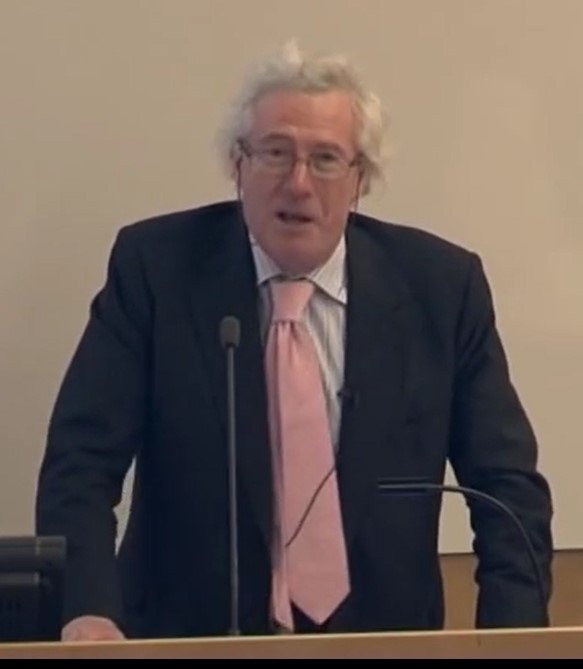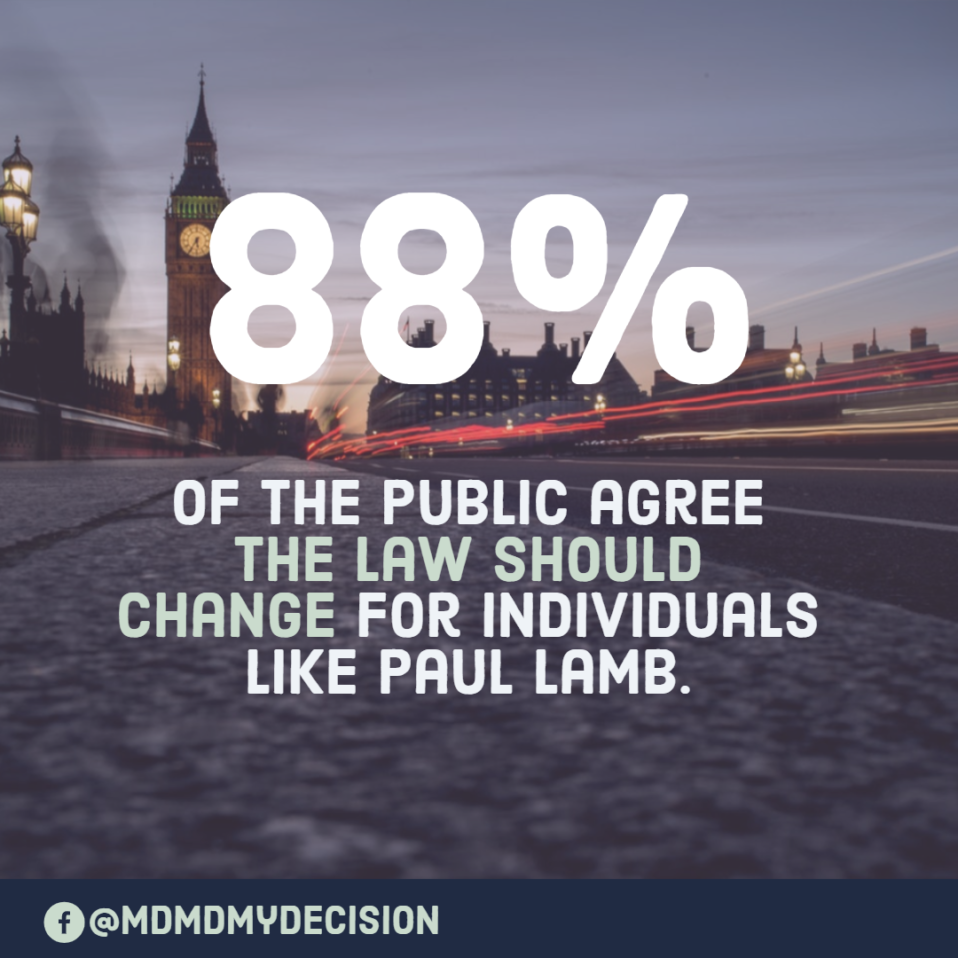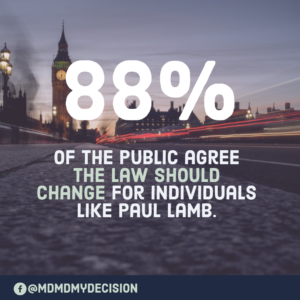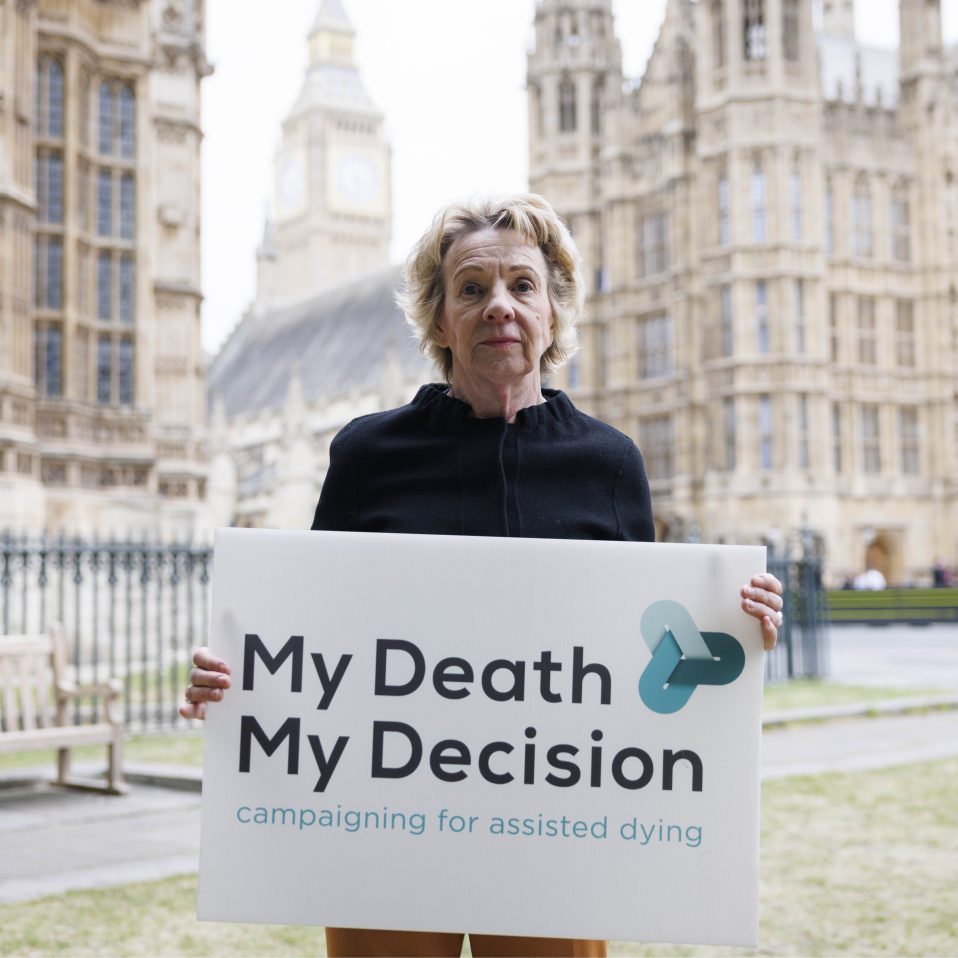This year’s BBC Reith lecturer is former supreme court judge Jonathan Sumption QC, who was one of the judges in the Tony Nicklinson case. In his first lecture “Law’s Expanding Empire“, he looked at what we expect of the law and how it’s aims have developed over the years.
The programme can be heard here, or the transcript read here.
The lecture, and in particular one of the questions at the end, are of interest to the debate on the Assisted Dying law. Lord Sumption discussed the degree to which the law permits autonomy and protects against risk, both of which have important implications in the assisted dying debate.
Lord Sumption identified “growing moral and social absolutism to produce conformity” as one trend in law. In some areas such as religious worship and homosexuality the law has been relaxed. (The decriminalisation of suicide in 1961 is another relevant relaxation.) In other areas he argued that the law applies conformity. “We are a lot less ready than we were to respect the autonomy of individual choices. We tend to regard social and moral values as belonging to the community as a whole, as matters for collective and not personal decision.” He discussed the Charlie Gard case, pointing out that the parent’s wishes were not permitted. In cases like this the medical profession understandably use the law to make the final judgement, protecting them from legal liability. Lord Sumption was not disagreeing with the Charlie Gard ruling, but pointing out how the law limits autonomy, of the parents in this case, in ways that it wouldn’t have done a generation ago. The law has always, rightly, limited personal autonomy when this is necessary to protect the rights of others. “What is new is the growing tendency for law to regulate human choices even in cases where they do no harm to others and there is no consensus about their morality.”
Although this trend may go some way to explain the reluctance to legalise assisted dying, in medical ethics there is a very strong principle of respecting individual autonomy. We hear “patient-centred medicine” being advocated, though this currently stops short of patient-centred choice when it comes to assisted dying, due to the current law. In refusing treatment, however, patient autonomy is strongly defended. In the Noel Conway legal challenge it was said that a change in law was unnecessary as he could end his life by removing the breathing apparatus on which he was dependent. Precisely this option was used by John King, who also suffered from MND. This right to refuse life sustaining treatment is upheld by the courts even when it is contrary to medical opinion. This is seen clearly in cases such as the “champagne suicide” and a woman suffering from mental illness who refused a leg amputation that her medics deemed essential. Advance Decisions allow us to extend this right to refuse life sustaining medical treatment even when we have lost the mental capacity to make the decision at the time.
A second area Lord Sumption identified as leading to growing dependence on the law is the quest for greater security and reduced risk. He discussed the risk of road accidents posed by motor vehicles. The accepted situation is that the benefit of convenient fast transportation outweighs the risk of loss of human life and severe injury. “Eliminating risk is not an absolute value, it’s a question of degree.” He gave an example of how to protect the public from the ill-advised behaviour of some individuals, such as a man who was paralysed due to diving into a lake. The House of Lords rejected a claim against the local authority as the problem was seen to be self-inflicted folly. “Every time that a public authority is blamed for failing to prevent some tragedy like this, it will tend to respond by restricting the liberty of the public at large in order to deprive them of the opportunity to harm themselves. It’s the only sure way to deflect criticism.” He pointed out that “the law doesn’t in fact provide a solution for every misfortune. It expects people, within limits, to look after their own interests.” He acknowledged that “public expectations are a powerful motor of legal development” but qualified this saying “Judges don’t decide cases in accordance with the state of public opinion but it is their duty to take account of the values of the society which they serve. Risk aversion has become one of the most powerful of those values and is a growing influence in the development of the law.” This is highly relevant to the discussion of possible risk in the current law on assisted suicide, and any future law enabling medical assistance to die.
Interestingly the “risk” argument is used by those on both sides of the assisted dying debate. In a recent article Alyson Thomson, director of Dignity in Dying in Scotland, said: “The current law is unsafe and, unlike an assisted dying law, does not protect vulnerable people. We are calling for a compassionate law with up-front safeguards – rather than a criminal investigation.” This was rejected by Baroness Grey-Thompson in a letter in the Times on 20th May 2019 which went on to argue that legalised assisted dying would be unsafe. The risks on each side are relative.
From MDMD’s perspective the current law against assisted dying makes some people feel they have to end their life themselves, or persuade others to help them illegally. 7% of recorded suicides involve people who are terminally ill. To this should be added suicides of those with incurable illnesses but without terminal illness, which result in an unacceptable quality of life which causes them to end their lives. Many unassisted suicides fail, possibly leaving seriously ill patients even sicker and more desperate. After a death it is much harder to assess whether the deceased agreed, or was coerced. You can’t ask them. There wasn’t the chance to protect them. There are a number of very real risks with the current law when people attempt to take their lives themselves (or with assistance) due to the lack of an assisted dying law:
- Suicides which are ill-advised due to lack of counselling;
- Suicides or assisted suicides which have been coerced;
- Botched suicides resulting in the person surviving but in a worse condition;
- Suicides which are done sooner than ideally wished out of fear that it may be impossible to do unaided as the illness progresses.
It is surely safer to professionally evaluate any request for medically assisted suicide, and provide legal assistance when there are no acceptable alternatives and the person is making a free, mentally competent, informed and persistent life-ending choice in the face of incurable and unacceptable suffering. If medically assisted suicide were available in this way there may be very rare cases where coercion remains undetected, despite the best processes on detection. However, exactly the same potential risk exists in patients who choose to end their lives legally today by refusing life sustaining treatment. Society already accepts that risk of possible coercion. So why should the legalised assisted dying case be treated differently? Those who voice their concerns about the possible risks of coercion in assisted dying, but who also uphold the patient’s right to refuse life sustaining treatment, seem highly inconsistent.
It is very relevant to point out that another retired and highly respected judge, Sir Nicholas Wall, the former President of the Family Division, Britain’s most senior family law judge chose to end his life by hanging in his care home, following a dementia diagnosis. Few would argue that this was a good death, but quite possibly more preferable for Sir Nicholas than the alternative. Deaths like this are the grim reality of the current law preventing medical assistance to die.
In the questions that followed Lord Sumption’s lecture, Ann Whaley told Lord Sumption about her well publicised case concerning how she helped her husband go to Switzerland for an assisted death there and how she had to endure a police investigation. She said “The current law on assisted dying is not working and a huge majority of the public wants to see a change.” Lord Sumption responded that it was not for judges to make decisions on these matters. He questioned the reliablity of opinion polls, due to the simplicity of the questions asked and continued: “this is a subject on which people have strong moral values and on which they disagree. There is a large number of people who feel … that changing the law so as to allow assisted suicide would render large numbers of people vulnerable to unseen pressures from relatives and so on. There are others who feel that the intervention of somebody in the life of another so as to end it is morally objectionable.” He regarded this as something that needed to be resolved by a political process.
The chair then pressed Lord Sumption for his personal opinion on the issue, to which he responded: “I think that the law should continue to criminalise assistance in suicide and I think that the law should be broken. I think that it should be broken from time to time. We need to have a law against it in order to prevent abuse but it has always been the case that this has been criminal and it has always been the case that courageous relatives and friends have helped people to die, and I think that that is an untidy compromise of the sort that I suspect very few lawyers would adopt, but I don’t believe that there is necessarily a moral obligation to obey the law and, ultimately, it is something that each person has to decide within his own conscience.”
Many people have reacted with astonishment at this statement. Suggesting that the law should be broken is surprising enough, clearly indicating that the law is not appropriate, but it is quite incredulous when the reason given for not changing it is due to a fear of abuse which is unsubstantiated, and as argued above, is no greater than the risk of abuse accepted today regarding refusal of life sustaining treatment. In his lecture he argued that it was unrealistic to expect the law to guard against all risks – especially when attempting to do so limits autonomy unreasonably. The desire for a peaceful medically assisted death, when faced with incurable suffering, is surely a case where autonomy should be respected. From MDMD’s perspective the risks of the current law and the increased autonomy of the incurably suffering who wish to end their lives, far outweigh any risks of a carefully designed and implemented assisted dying law.
Ann Whaley pointed out that Lord Sumption omitted to mention the issue of compassion – not only for the person wanting an assisted death, but also for their loving family who have to suffer the consequences of the current cruel law to provide the help the suffering person requests. Unlike Lord Sumption, many people do feel a moral obligation to obey the law – and a good thing too! People taking the law into their own hands is a hugely risky suggestion. Instead of being encouraged to break a bad law, we need a good compassionate law which provides autonomy with acceptable safety – at least the same level as safety afforded for those who refuse life-preserving treatment.








Recent Comments